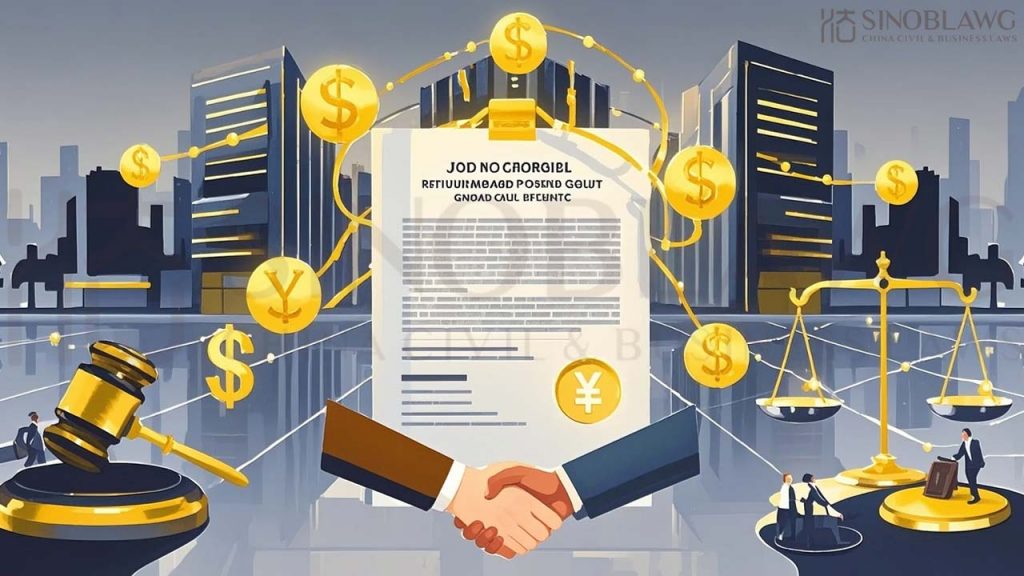As a professional serviced office provider, TEC and other similar operators deal with various kinds of tenants: domestic companies, individuals, and foreign companies. Very often, who signs on the lease contract matters a lot to such “professional landlords“.
Here are some typical situations that shall be given special attention to by those professional landlords. As their external legal counsel, lawyers shall incorporate these circumstances into their risk management system for their clients.
1. Individual Signatory on behalf of Foreign Company
Landlords in China shall be careful with foreign tenants. By “foreign tenants”, I am referring to foreign companies that don’t have legal entities in China (as in the case of foreign invested companies) but engage in business activities in China.
When they sign legal contracts/agreements, they will have a person to act on their behalf to sign the contracts. So far as I know, many foreign countries don’t have a system similar to China’s chop/stamp (for more please click here) and legal representative (for more please click here) regime for their companies and enterprises. Those foreign companies can only act through their directors or managers. In practice, an individual will sign on the lease documents with a phrase “for and on behalf of XXX ” indicating that the person is not acting for his or her personal interests but for a legal organization.
But the point is that in reality, salespersons of the professional landlords don’t know what legal implications such practice can bring about, and they are happy so long as there is a new customer coming up with money. They don’t know or may don’t care what if the foreign company defaults in the course of leasing.
So what if the foreign company defaults under the leasing contract? The landlords may end up with no effective legal remedy at all, because:
(1) the foreign company is a fake one indeed. In other words, there is no such a foreign company at all. Under Chinese laws, this is a fraud which entitles the other party to request courts or arbitration institutions to amend or revoke the contract in question. Upon revocation, the innocent party can claim damages from the person committing the fraud. But the person may not have any meaningful assets to compensate for the loss of the landlords.
(2) the signatory does not have the power to represent or act on behalf of the company. First of all, it is difficult for the landlords to judge whether the person ostensibly acting on behalf of the foreign company does have the legal authority to bind the foreign company. It is a question to be answered with good legal skills. Under China rules on conflict of laws, whether the person has the required authority to represent and bind the company he is acting for is a question to be answered in accordance with the law where the agency is established, and in this case, the laws in the place of incorporation of the foreign company.
In this situation, the leasing contract, depending on the actual conditions, may or may not bind the foreign company. If there is no evidence manifesting the foreign company ratifying the representation, the landlords may be left no remedy but to sue the individual signatory only.
(3) even if the person does have the authority to represent and bind the foreign company, if the foreign company commits breach and has little or no assets in China, the landlord may still be left in an awkward situation where it cannot do much to pursue the liabilities of the foreign company as it is far away.
So the trouble a foreign tenant may cause is huge. professional landlords shall be more vigilant in dealing with them.
In practice, the landlords may consider asking more deposit from such tenants or ask the foreign company to provide additional credit enhancement measure such as a surety or other security.
2. Individual Signatory on behalf of a Company in Formation
In China, to form a company, you need to sign a leasing contract before you apply for the business license for your company. So before formation of the company, the individual promoters (the to-be shareholders of the said company) need to sign the leasing contract on behalf of the company in formation.
If the company is duly formed and created, the landlord can only pursue the liability of the company formed if a breach is committed under the lease contract.
If the company fails to be formed or created for any reason, what shall the landlord do in order to pursue the default liabilities? who shall the landlords go after therefor? As per a piece of judicial interpretation issued by China Supreme Court, the landlords may ask the signatory promoter to bear the relevant breach liability together with other promoters, jointly and severally.
3. Actual User not the Signatory Tenant
It is quite often that after the signing of the leasing contract, the signatory tenant may exit the office and give it to its affiliated company in whole or in part.
It is quite simple at the first glance. Legally, the tenant is subletting the office to its affiliate or other companies. Under Chinese laws, the rules governing landlord, tenants and sub-tenants are quite clear.
But what if the landlord start collecting rents directly from the sub-tenant? Will this act legally create a lease relationship between the sub-tenant and the landlord in lieu of the one between landlord and tenant? If the sub-tenant refuses to pay rents, will the landlord be able to sue the tenant or subtenant or sue them both together?
——————–
As a legal counsel, it is important that we know how to deal with the situations with client’s interests in mind, but it may be more important for lawyers to help clients to prevent such disputes from happening by installing risk management systems for the clients so that they can identify risks and accordingly take measures to minimize the risks.








Comments